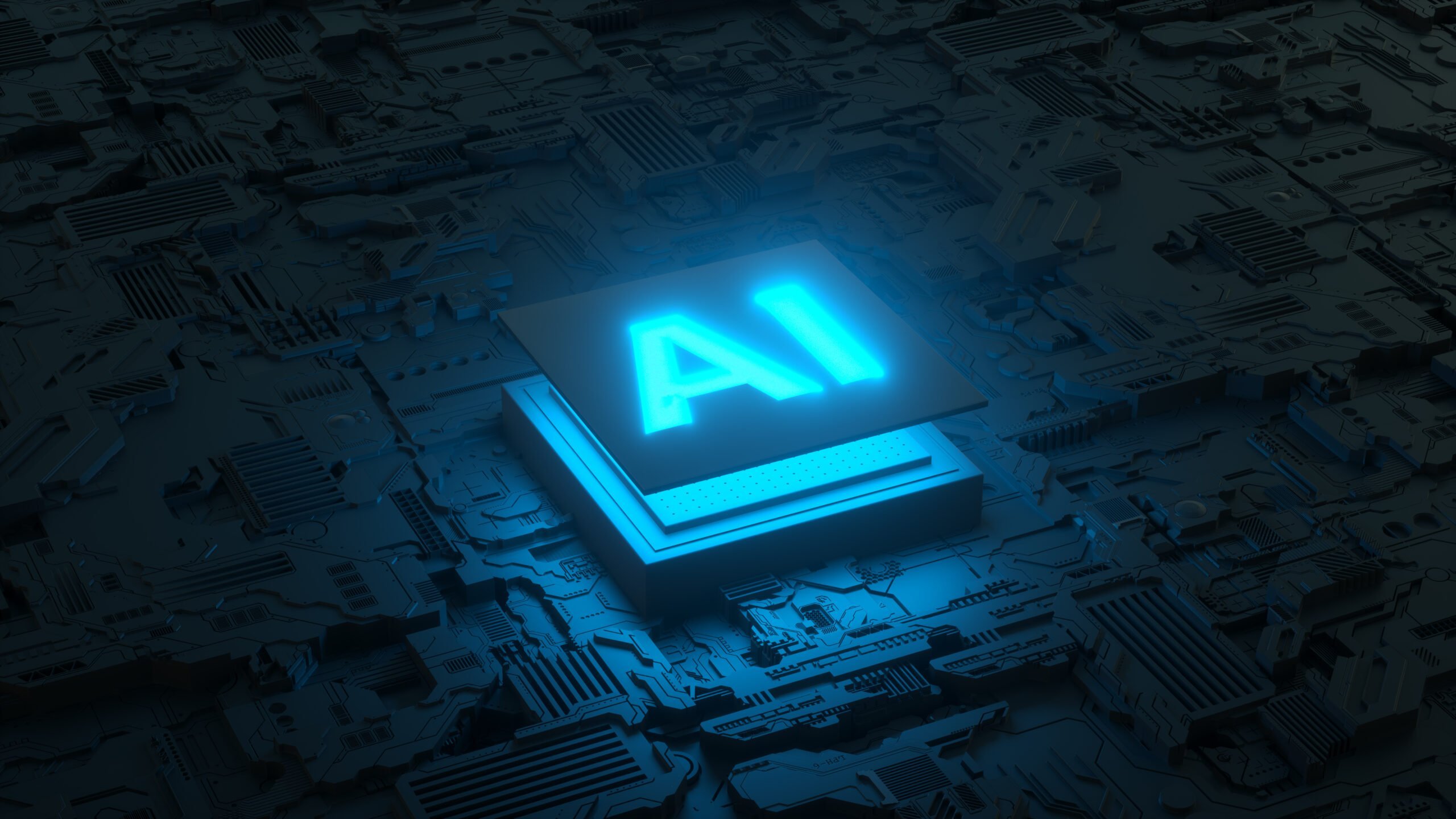You may have heard that AI is changing digital marketing, but what does that mean? How is Ai changing digital marketing?
Well, AI is allowing marketers to do previously impossible things. For example, thanks to AI, we can target customers with unprecedented precision.
So if you’re a marketer or business owner curious about how AI is changing the world of digital marketing, keep reading!
We’ll outline some of the most exciting ways AI revolutionises the industry.
And don’t worry – even if you’re not a tech expert, we’ll explain everything in easy-to-understand terms. So without further ado, let’s get started!
What is Ai?

AI stands for Artificial Intelligence. It is the process of programming a computer to make decisions for itself.
It can be done through several methods, including but not limited to rule-based systems, decision trees, genetic algorithms, artificial neural networks, and fuzzy logic systems.
AI aims to create machines/software that can work and react like humans.
It means creating systems that can understand natural language, identify patterns, make predictions, and learn from experience.
While AI has existed in some form since the 1950s, it is only in recent years that it has begun to realise its true potential.
Thanks to computing power and data storage advances, AI is used in various industries, including healthcare, finance, retail, manufacturing and marketing.
As the field of AI continues to grow, so too will its potential applications.
Ai in Marketing:

The use of artificial intelligence (AI) in marketing is growing at a rapid pace.
By 2025, it was estimated to be responsible for $190 billion in annual spending.
There are many reasons for this growth, but the main one is that AI allows marketers to personalise messages and content at scale.
It means that each customer can receive a tailored experience that is more likely to result in a purchase.
AI can help automate repetitive tasks, freeing time for marketers to focus on strategic planning and creative tasks.
In addition, AI can provide insights that humans might not be able to discern from data.
For example, by analysing patterns in customer behaviour, AI can help identify trends and predict future behaviour.
As a result, AI plays a vital role in helping marketers create more effective campaigns and connect with customers in meaningful ways.
As the benefits of AI become more widely known, even more companies will likely begin to use it in their marketing efforts.
Benefits of Ai in Marketing:

There are many benefits of using AI in marketing.
Some of the most notable ones include:
Improved Customer Segmentation:
In marketing, customer segmentation is the process of dividing customers into groups based on shared characteristics.
It allows businesses to target better their advertising and promotional efforts, as well as tailor their product offerings to meet the needs of specific groups.
Historically, customer segmentation has been tedious and time-consuming, requiring marketers to analyse customer data and judge which groups to target manually.
However, with the advent of artificial intelligence (Ai), this process has become much easier and more efficient. Ai can quickly sift through large amounts of data and identify patterns that would be difficult for humans to discern.
As a result, Ai-powered customer segmentation can help businesses save time and resources while still achieving their desired results.
Precision Marketing:
Another benefit of AI is that it allows for precision marketing.
It is because AI can target customers with unprecedented accuracy.
For example, Facebook‘s Lookalike Audiences feature allows businesses to create audiences of people similar to their current customers.
In addition, AI can also be used to personalise messages and content.
For example, based on their watching habits, Netflix uses AI to recommend movies and TV shows to its users.
This personalised approach means that users are more likely to keep using Netflix, as they know that they will always be presented with content that they’re interested in
Improved Customer Insights:
AI can also help businesses to obtain improved customer insights.
It is because AI can analyse customer data to identify trends and correlations that humans might not be able to discern
As a result, businesses can gain a better understanding of their customers and what they’re looking for
In addition, AI can help businesses to track customer behaviour over time, which further helps to improve customer insights.
Faster Results:
Finally, another benefit of AI is that it can help businesses to obtain faster results.
It is because AI can automate tasks such as data collection and analysis.
As a result, businesses can save time that would otherwise be spent on these tasks.
In addition, AI can provide real-time insights, which helps businesses make more informed decisions.
Overall, the benefits of AI in marketing are numerous.
AI can help businesses to segment their customers more effectively, reach new potential customers, obtain improved customer insights, and save time.
As the benefits of AI become more widely known, even more businesses will likely begin to use AI in their marketing efforts.
Content:
AI has many benefits in marketing; some of the most notable ones include improved customer segmentation, precision marketing, and improved customer insights.
AI can help businesses to segment their customers more effectively, reach new potential customers, obtain enhanced customer insights, and save time. As the benefits of AI become more widely known, even more businesses will likely begin to use AI in their marketing efforts.
Sales:
The use of artificial intelligence (AI) in sales is growing at a rapid pace.
By 2025, it was estimated to be responsible for $190 billion in annual spending.
There are many reasons for this growth, but the main one is that AI allows businesses to automate repetitive and time-consuming tasks.
It frees sales representatives to focus on more critical tasks, such as developing client relationships.
Another reason for the growth of AI in sales is that it allows businesses to personalise their messages.
For example, a sales representative can use AI to send a potential customer information about a product that is relevant to their interests.
It helps to create a stronger connection between the customer and the business, which can lead to a sale.
Overall, the use of AI in sales is growing rapidly because it allows businesses to automate repetitive tasks and personalise their messages. It helps companies save time and money while increasing their chances of making a sale.
Customer Service:
The use of AI in customer service is also growing.
AI can automate tasks such as responding to customer queries and providing customer support.
In addition, AI can also help businesses to improve the quality of their customer service.
For example, by using AI to analyse customer data, businesses can identify patterns and trends that they can then use to improve their customer service.
Overall, the use of AI in customer service is growing because it helps businesses to automate tasks and improve the quality of their customer service.
It helps businesses save time and money while providing a better experience for their customers.
How is Ai Changing Digital Marketing:
Digital marketing is evolving rapidly, and artificial intelligence (Ai) plays a significant role in this evolution. Here are three ways that Ai is changing digital marketing:
Improved targeting:
Ai can help you to identify your target audience more accurately than ever before. By analysing data points such as demographics, interests, and behaviour, Ai can give you a deep understanding of who your ideal customer is. With this knowledge, you can create targeted campaigns more likely to resonate with your target audience.
Enhanced personalisation:
Thanks to Ai, it’s now possible to personalise marketing messages on an unimaginable scale.
Using data points like past purchase history and browsing behaviour, Ai can help you send highly personalised content relevant to each customer. This level of personalisation can result in higher levels of engagement and conversions.
Increased ROI:
Because of its ability to improve targeting and personalisation, Ai can also help you to achieve a higher return on investment for your digital marketing campaigns. By optimising your campaigns for maximum efficacy, you can see a significant improvement in your bottom line.
Ai is changing the digital marketing landscape, and those who embrace it will be well-positioned for success in the future.
Frequently Asked Questions:
What is the difference between artificial intelligence and machine learning?
Artificial intelligence (Ai) is a broad term for any computer system capable of carrying out tasks usually requiring human intelligence.u003cbru003eu003cbru003eIt can include tasks such as understanding natural language, recognising objects, and making decisions.u003cbru003eu003cbru003eMachine learning is a subset of Ai that deals with developing algorithms that can learn from data and improve over time.
Does AI replace digital marketing?
No, artificial intelligence does not replace digital marketing. However, it is changing the digital marketing landscape, and those who embrace it will be well-positioned for success in the future.
How is AI changing the marketing industry?
There are several ways that Ai is changing the marketing industry, including improved targeting, enhanced personalisation, and increased ROI. u003cbru003eu003cbru003eUsing data points such as demographics, interests, and behaviour, Ai can help you identify your target audience more accurately than ever before. u003cbru003eu003cbru003eIn addition, Ai can also help you send highly personalised content relevant to each customer. Finally, by optimising your campaigns for maximum efficacy, you can see a significant improvement in your bottom line.
How will AI change the future of marketing?
The future of marketing will be shaped by artificial intelligence in several ways. u003cbru003eThe most important ways include improved targeting, enhanced personalisation, and increased ROI. u003cbru003eu003cbru003eIn addition, Ai will also allow for the development of new marketing channels and the automation of many marketing tasks. u003cbru003eu003cbru003eAs Ai continues to evolve, we can expect even more changes in the marketing field.
The Bottom Line:
AI is changing digital marketing in big ways, and it’s important to stay ahead of the curve.
By understanding how AI works and incorporating it into your marketing strategy, you can stay competitive and future-proof your business.
Have you started using AI in your marketing yet? If not, now is the time to start!




